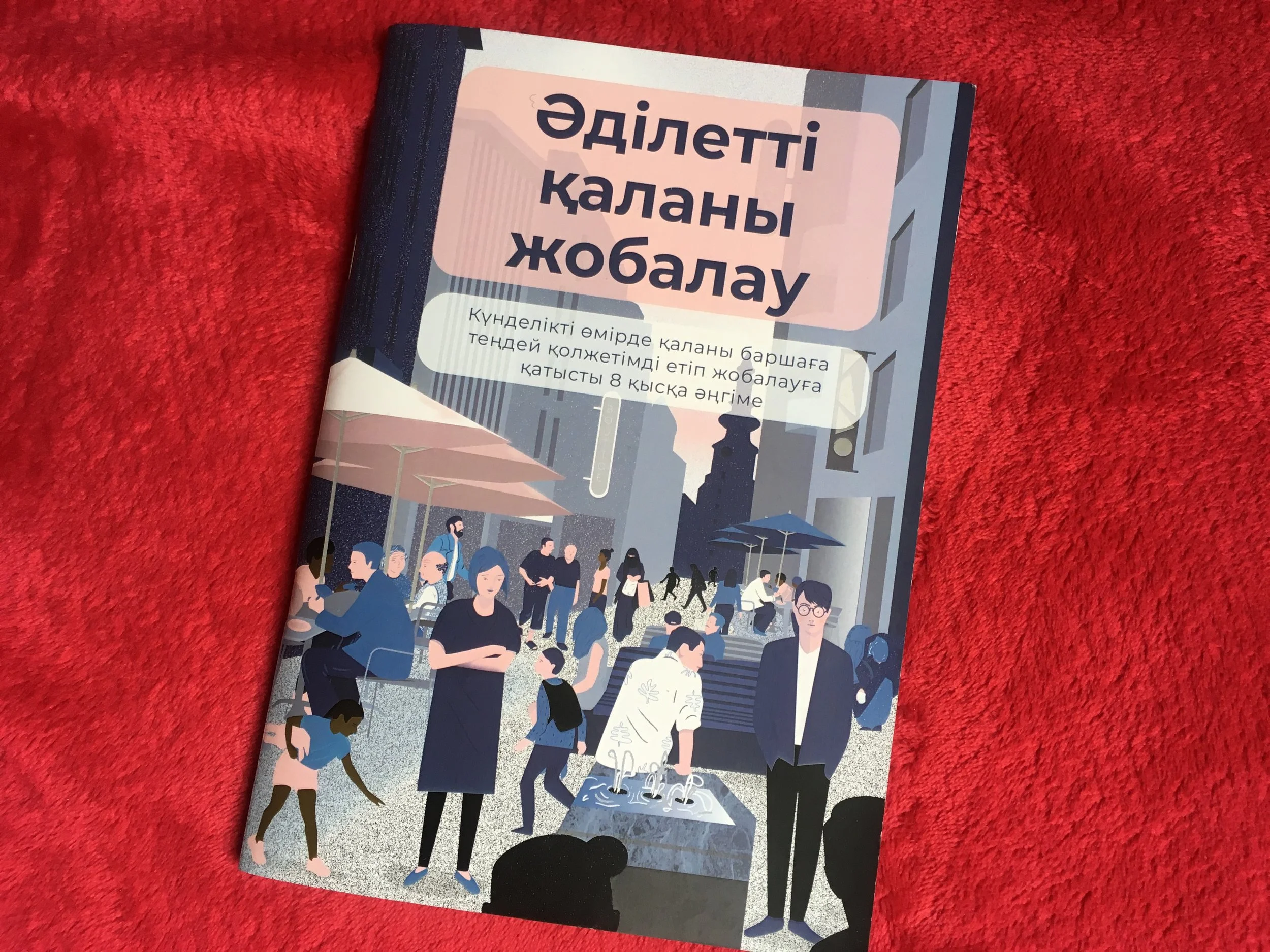Street prostitution is usually a priority for displacement from gentrifying neighbourhoods. Focusing on Alhambra neighbourhood in Brussels and Józsefváros in Budapest, this research delineates the measures taken by local governments, police and other local actors to displace street prostitution. The research aims at identifying those measures, reflecting upon their implications and investigating the outcomes of the same. Simultaneously, changes in the urban landscape and regulations aimed at displacing prostitution, as well as changes in the landscape of street prostitution, are documented and mapped. Noting these processes and occurrences, I conclude by elaborating on recommendations collected throughout the research that address the local government.
Cartoon_How to Design a Fair Shared City? in Russian and Kazakh language
On April 26 2019 in Almaty, Urban Forum Kazakhstan introduced the translation of the Kazakh language into the book "How to Design a Fair Shared City?" and met with the editor of the book. The work of the Czechoslovakia based urbanist Milota Sidorova is based on comic-book stories following needs of diverse city's inhabitants that are not always taken into account when designing streets and sites in the city. Urban Forum Kazakhstan has invited Milota to launch the book that was translated into Kazakh (by Erter Orazay) to Kazakhstan to introduce also her works and perspectives on public space to local readers. Presentation of this book was organized by WPS Prague and Almaty's Landstudio Architecture Bureau.
Report_Summary: Life and the Status of Women in the North Caucasus. Irina Kosterina
What makes up the daily life of the woman who lives in the North Caucasus? What does her sense of self consist of? What are her fears, dreams, and attitudes toward career, family life and relationships? What kind of changes she would like to see and bring about in her life? The research of Heinrich Boell Foundation «Life and the Status of Women in the North Caucasus» was conducted as a serious attempt to answer these questions.
#timefor50: Time for Equality RebelArchitette Report and Campaign
#timefor50: Time for Equality RebelArchitette launch a new awareness campaign for a fair representation of gender in architecture
After the issuu of their first digital book "ARCHITETTE = WOMEN ARCHITECTS in May 2018, the group of digital activists confirms its commitment to combat discrimination in the architecture profession. RebelArchitette are presenting a statistics report on the presence of female speakers at architecture events over the last two years and are launching the hashtag #timefor50, symbol of this new campaign in the name of equal representation in the design world.
Article_Women of the Dam: Stories and Questions of Nubian Displacement, Menatalla Ahmed Agha
Looking at the issue of Muslim displaced women as a displaced Muslim woman, I could relate to the struggle, and I could also refuse being framed in research as a passive factor, offering a new perspective on the issue. In our contemporary time, Islamophobia has become a recurrent phenomenon worldwide, in which a view of women as victimised is common; denying Muslim women the credit for their resistance and taking away the definition of their faith from them, while they as a subaltern can speak, build and resist.





